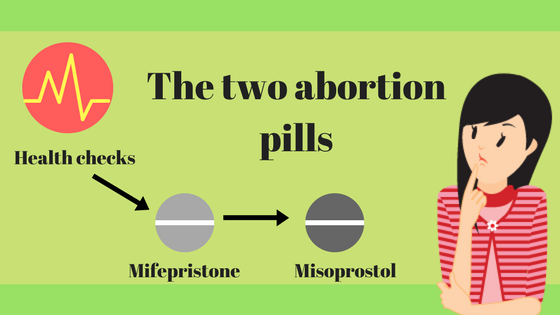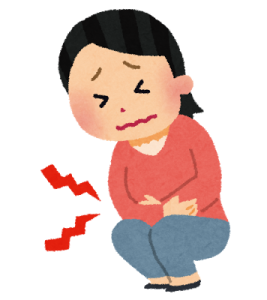
What happens to the hormones?
Pregnancy develops as regulated by the female hormones. Progesterone is particularly important to sustaining a pregnancy. It keeps the endometrial lining thickened for the implantation and nourishment of the fetus. Similarly, maternal glucocorticoids are also very important for the development of the fetus. They are steroidal hormones that nurture the fetus and facilitate the maturation of its organs. Pregnancy will not continue to develop in altered conditions of these hormones. This is the fact exploited by the abortion medication.

The primary medication, Mifepristone, is a synthetic steroid that is an anti-progesterone. It comes with an affinity to the progesterone receptors higher than that of the hormone itself. When administered, Mifepristone competes with progesterone at its binding sites thus blocking its activity. When this hormone fails to show its effect, the thickened uterus lining is disrupted. This in medical terms, is referred to as a decidual necrosis. The implanted fetus will no longer remain linked to the uterus and it will have no feed source to develop on.
Moreover, the same drug is also known to show a minor anti-glucocorticoid activity. Some dedicated researched have also found mifepristone to target the corpus luteum during an abortion. Corpus luteum is known to secrete both estradiol and progesterone to maintain pregnancy.
Therefore, during an abortion, the progesterone and estradiol levels plummet greatly. However, the concentration of both progesterone and estradiol after abortion is the same as during regular menstrual cycles.
Misoprostol tablets do not have any significant effects on the hormones.
Moods during abortion
If an individual has been very certain about her abortion, she is particularly confused about the way she feels during an abortion. Fluctuating levels of hormones that are adjusting the body to not being pregnant anymore, bring along a wide array of emotions. At an instant the woman may feel irritated, she might feel elevated in a while and then sad again.
As a general pattern, low levels of progesterone decrease the content of serotonin in your body. Serotonin is a natural mood stabilizer that regulates your mood, social behavior, and sleep. Thus, an abortion naturally affects your sleep routine and also makes you feel sad. This is usually confused with depression.
An intense of any of the aforementioned can be felt about 4-6 days after an abortion. But everything is set back to normal within the next few days.
How depression is different
Proponents of the anti-abortion ideologies claim the existence of a post-abortion stress syndrome. This is supposed to be characterized by extreme anxiety and depression. However, there is no such recognized disorder that is caused directly by abortion. A pregnancy termination procedure does not lead to any change in the body systems that can cause a sad feeling. So, it is other worries that the individual may have had during the process that can cause depression. Not enough support for the decision or lack of care and guidance during the process can be the main causes.
If the sad mood lasts for over two weeks, a person can be recognized as a victim of depression and will require medical attention.

